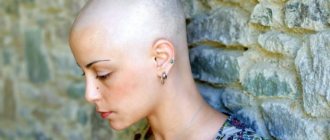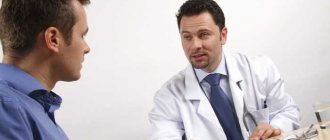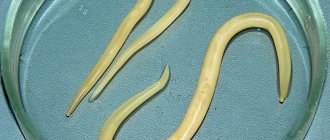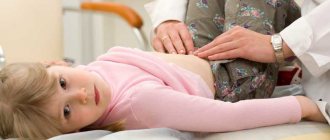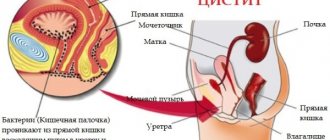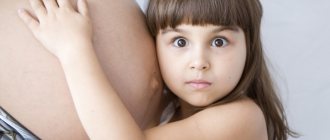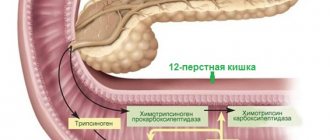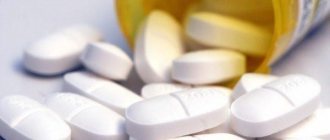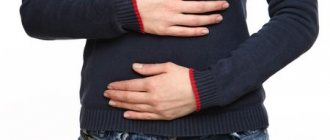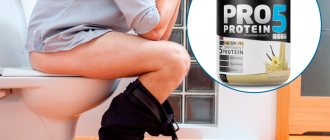Chemotherapy is the process of exposing cancerous tumors to toxic elements in order to destroy them. The drug contains substances that, unfortunately, affect not only the pathological neoplasm, but also other structures. The active elements, entering the intestinal lumen, inhibit the microflora and activate the development of bacteria. If diarrhea occurs after chemotherapy, experienced doctors will tell the patient what to do to eliminate the uncomfortable symptom.
Causes of diarrhea during chemotherapy rules
Most often, the disease develops for two reasons: due to the use of cytostatic drugs and as a result of leukopenia. The fact is that chemotherapy drugs are toxic not only to malignant cells, but also to healthy ones. First of all, they affect the red bone marrow, as well as the intestinal walls. As a result, ulcers can form in the digestive tract, which interferes with the normal absorption of food and speeds up its passage through the intestines. And as a result, diarrhea occurs during chemotherapy.
Leukopenia contributes to the appearance of diarrhea after chemotherapy only indirectly. In essence, this is a sharp decrease in the body's defenses, as a result of which the risk of contracting any infections, including intestinal ones, increases. In this case, diarrhea may also be accompanied by vomiting, as well as an increase in body temperature.
Diarrhea during chemotherapy is common
Less common causes include stress, complications after surgery, and poor diet.
Procedure
If acute diarrhea develops after chemotherapy, the patient should contact the doctor who administered the chemotherapy. Any delay, even a minor one, can provoke worse consequences. Such complications will not stop on their own and can reach their maximum extent in just a few days.
The specialist is faced with the task of carefully understanding the true causes of the development of diarrhea. If it is a consequence of chemotherapy, then the cause of its occurrence is cytostatics. In such cases, it is recommended to stop taking them for a certain time or stop completely.
Before visiting a specialist, you can take several capsules of Imodium, which will help stop attacks of diarrhea. Next, the oncologist will determine the sequence of actions.
Restoring the volume of lost fluid
The greatest danger of diarrhea is that it increases the risk of dehydration. Sometimes even restoration of normal water levels is carried out in a hospital under the supervision of specialists.
If diarrhea occurs while undergoing chemotherapy, you should immediately consult a doctor so that he can help find out and eliminate the causes of the illness. In addition, the specialist will be able to determine the severity of the disease and select treatment accordingly.
Most often, the drug Regidron and other medications with similar active ingredients are used to restore water balance. With its help, the lack of electrolytes is also well compensated due to the potassium and magnesium in the composition.
If this medicine is not at hand, then a solution with similar properties can be made at home from improvised means. The recipe is as follows: per liter of water take 6 teaspoons of sugar and a spoonful of salt. You can drink the resulting mixture when it reaches room temperature in small portions at short time intervals.
To reduce the risk of dehydration, it is helpful to drink plain water as much as possible.
In case of severe lack of fluid in the body, its balance is most often restored by administering various solutions (most often glucose and saline) through a dropper.
Drugs
A highly effective drug called “Neointestopan”. At its core, it is an adsorbent. After intake, its active components settle on the intestinal mucous membranes, eliminating bacteria and toxic substances. The use of the drug reduces the frequency of bowel movements and normalizes the intestinal microflora.
The Finnish-made drug “Regidron” quickly restores the lack of salt and fluid in the body. The painful syndrome can be relieved by taking analgesic medications such as Platifilin, No-shpa, Baralgin. What other inexpensive diarrhea tablets can I use?
In addition, the patient is recommended to take Enterobene or Loperamide. When using these medications, undesirable reactions may develop in the form of vomiting, nausea, dry mouth, dizziness, migraines, and abdominal cramps.
A mild effect is achieved by taking the drug "Diosorb". It can be used to relieve diarrhea of any etiology. Diosorb acts as a strengthening agent on the intestinal mucous membranes. Side effects do not develop with its use. It can reduce the level of absorption of other medications, and therefore a certain period of time should be maintained between doses of medications.
Attapulgit and Neointestopan are highly effective in treating the manifestations of diarrhea. They normalize intestinal flora, reduce the number of bowel movements by removing bacteria and toxins from the intestinal cavity.
There are other diarrhea treatments available for adults.
Treatment options
There are quite a few ways to treat diarrhea. First of all, therapeutic measures are aimed at relieving symptoms, normalizing stool and restoring the body’s water balance.
Medication
Treatment of mild to moderate ailments is most often carried out using the drug Regidron. In combination with this drug, various antispasmodics and analgesics can be prescribed to relieve pain.
To relieve symptoms, you can take medications whose main active ingredient is Loperamide (Imodium) or Diosorb (Smecta). Diosorb-based products will not only reduce the manifestation of unpleasant symptoms, but also strengthen the intestinal walls, which is very important for patients undergoing chemotherapy.
Chemotherapy diarrhea can be treated with Loperamide
You can reduce the number of attacks with Neointestopan or Attapulgite. They attract and then remove toxins and various pathogens of intestinal infections from the body. In addition, they help restore normal intestinal microflora.
Sometimes, in combination with the listed drugs, drugs can be prescribed to restore the level of hemoglobin in the blood, since this indicator may fall due to indigestion. Such agents include, for example, Erythropoietin, as well as other options with a high iron content.
Glucocorticoids may be prescribed to support the body and speed up the recovery process.
If the patient has severe diarrhea, it is treated in a hospital. Most often, droppers are placed with glucose, blood plasma substitutes and electrolyte solutions. When the malaise lasts longer than two days, the drug Octreotide is prescribed in addition to droppers.
In parallel, drugs for stomach upset, antibiotics and vitamins are used (most often these are various absorbents, opiates, atropine sulfate).
If an upset stomach is accompanied by an increase in temperature, then most likely the cause of the malaise is an infection that has entered the body and therefore antibacterial therapy should be carried out.
Normalization of stool is carried out by restoring normal intestinal microflora. For this purpose, the patient is prescribed various biotic agents.
Folk
For indigestion, folk remedies can also be quite effective. For example, herbs with an astringent effect help well - blueberries, St. John's wort, chamomile, oak bark.
Treatment with chicory
Brew several branches of the herb with boiling water and continue boiling for 5 minutes. To get rid of the symptoms of diarrhea, it is enough to take 200 g of decoction.
Treatment with chicory is one of the traditional methods of treating diarrhea during chemotherapy
Walnuts
Rinse a handful of nut shells, place in a container and add water so that it covers the raw material by 3 cm. Then the whole thing is put on fire and boiled for 15 minutes. Cool the finished broth and drink a third of a glass three times a day.
An alcohol tincture of walnut partitions is also good. It is enough to take 200 g of partitions and pour 0.5 liters of vodka. All this is infused for 4 days, and then the resulting liquid can be drunk. The recommended dosage is 10 drops per spoon of water four times a day.
Serpentine and galangal
To prepare a healing drink, take 3 tablespoons of serpentine roots and pour 0.5 liters of boiling water over it all. Then you need to cook the resulting mixture for 15 minutes. After this time, the liquid cools down and you can drink it three sips four times a day.
A decoction of galangal is prepared in a similar way, only it should be taken in a different dosage - a third of a glass three times a day.
How to stop
It is difficult to stop diarrhea after chemotherapy on your own. It is necessary to inform the oncologist about the patient’s condition. The doctor will examine the cancer patient and rule out the development of an intestinal infection.
An oncologist should prescribe treatment for diarrhea after chemotherapy. The use of home methods should be discussed with your doctor.
Pharmacy drugs
Diarrhea during cancer requires complex drug therapy. It is aimed at preventing dehydration, restoring intestinal microflora, and removing toxic substances.
Diarrhea during chemotherapy is treated with drugs:
- Probiotics of the doctor's choice - Bifidumbacterin, Lactiale, Enterol or Probifor, Turbiotic Diarrhea.. They restore normal flora and suppress pathogenic microorganisms.
- Loperamide-based drugs slow down intestinal motility, reduce the number of urges to defecate, and reduce the volume of fluid released into the lumen of the colon. If there is no improvement with Loperamide, diarrhea does not go away, Sandostatin is prescribed.
- Sorbents for absorbing toxins during diarrhea - Enterosgel, Smecta. They have a light fixing effect. The use of activated carbon after chemotherapy is prohibited - during treatment, ulcerations of the gastrointestinal mucosa may appear.
- Enzymes to improve and facilitate the digestion of food and absorption of nutrients - Mezim and its varieties, Creon.
- Oral rehydration products, electrolyte solutions for intravenous infusion - Ringer's solution, Regidron, Re-sol, Ionica. Removes toxic substances, prevents the development of hypovolemia and loss of mineral salts.
- Antispasmodics – help relieve abdominal pain after chemotherapy. Smazmolgon, No-shpa, Platyfillin.
Additionally, for diarrhea, medications are prescribed to relieve nausea and vomiting - Cerucal.
The course of therapy is calculated individually. The doctor takes into account the duration of treatment, the type of cytostatic, the patient’s age, response to chemotherapy, results of blood and urine tests.
Folk remedies
To relieve diarrhea, decoctions of medicinal herbs with an astringent effect are used.
Effective recipes after chemotherapy:
- A rich fruit compote with an astringent effect – apples, currants, pears. Any proportions, no sugar added. Uzvar prevents dehydration and minimizes the consequences of a lack of microelements and vitamins.
- Rice water - coats the gastric mucosa, works as a sorbent, and has a wound-healing effect. For 0.5 liters of water you will need 2 tablespoons of cereal. Cook until the rice is completely soaked. For mild diarrhea, take 50 ml once an hour.
- A decoction of chicory green mass - 250 ml of boiling water will require 1 teaspoon of dry plant material. Bring to a boil, cover. Leave to cool completely. Take 150 ml after each bowel movement.
Recipes from traditional herbalists need to be agreed upon with an oncologist. They can be used for mild bowel disorders after chemotherapy.
Nutrition
There is no special diet for post-chemotherapy diarrhea. Due to the use of aggressive drugs, appetite may be absent for a long time. There is no need to refuse meals.
The following products are excluded:
- legumes, cabbage - promote gas formation, which can aggravate diarrhea that occurs after chemotherapy;
- sparkling water;
- sweets;
- baking;
- onions, garlic, radishes;
- canned foods, marinades;
- tea, coffee - additionally irritate the gastrointestinal tract;
- plums - they contain substances with a laxative effect.
Nutrition for diarrhea after chemotherapy - 5-6 times a day. Dishes should be at a pleasant temperature. It is better to avoid anything too hot or cold.
If you want to treat yourself to something sweet, you can eat high-quality dark chocolate in reasonable quantities.
Diet for diarrhea after chemotherapy
To speed up the recovery process, it is also important to pay attention to nutrition. At the initial stage, you should eat only liquid food, which will be easy to digest. You can prepare suitable dishes by steaming or boiling.
On the very first day of the disorder, it is advisable to drink only water, maybe mineral water, but definitely without gas.
You should carefully monitor your caloric intake for 5 days after symptoms appear. The diet should contain more proteins, but fats and carbohydrates should be limited.
The following should be excluded from the diet:
- Fatty types of meat and fish;
- Marinades;
- Pickles;
- Spices;
- Smoked meats;
- Sparkling water;
- Milk and dairy products;
- Rough food.
It is advisable not to eat onions, garlic, radishes, sour fruits and berries, legumes, as well as fresh bread and baked goods.
Vegetables and fruits must be peeled before consumption, as the peel is quite rough and can harm the intestines.
It is worth giving preference to foods high in potassium and protein. It is also important to drink enough liquid, in this case the norm is 2 – 3 liters per day.
It is necessary to eat food often, but in small portions, eat slowly, chewing thoroughly. It is advisable that the food be warm, as too low or too high a temperature irritates the intestines.
How to stop?
Drugs for treatment
For grades 1 and 2 of dehydration, it is recommended to take Loperamide, Smecta, and Attapulgite. These agents reduce the level of toxins and pathogenic flora in the intestines, strengthen the mucous membrane, and bind pathogenic compounds. The drugs begin to act after 1.5-2 hours. Diarrhea after chemotherapy up to 6 times a day cannot be ignored so that deeper stages of dehydration do not develop.
For grades 3 and 4 fluid loss due to diarrhea, assistance should be provided immediately. A glucose solution, electrolytes, and plasma substitutes are administered intravenously. To combat the etiological factor of diarrhea, Octreotide, Karbolen, and Venter are used. The dose of drugs depends on the patient’s body weight, the severity of fluid loss and hemodynamic parameters.
Nutritional Features
The use of medications should be supplemented with diet. This will help the intestinal mucosa recover faster. The patient's diet should be low-calorie, but appropriate for age and weight. You need to eat steamed and boiled foods. The number of meals should be at least 5 times a day in small portions. 20 minutes before meals you need to drink a glass of water, in this way preparing your stomach for the load. It is necessary to exclude fatty, fried foods, spices, quickly digestible carbohydrates, and alcohol from the diet. Vegetables and fruits should be eaten in moderation as they are rich in fiber, which stimulates the intestines to contract. Bread and baked goods are completely excluded from the diet.
After chemotherapy, appetite is reduced, but nutrition needs to be rationally adjusted so that the patient receives the required amount of energy.
Restoring fluid balance
With grades 1 and 2 of dehydration, lost water is restored orally. Therefore, there is no need to give intravenous infusions, since the patient himself is able to drink and the gastrointestinal tract absorbs water. It is recommended to take “Regidron” or “Oralit” with a balanced amount of minerals and electrolytes. You can also take still mineral water. Fluid intake should be small but frequent. This will prevent stress on the kidneys and will help gradually restore the acid-base balance.
With grades 3 and 4 of fluid loss, water restoration occurs in a combined way - orally and intravenously or parenterally only. This depends on the patient's ability to take the liquid and the digestibility of the gastrointestinal tract. For intravenous infusion, adapted mixtures with the required amount of electrolytes are used. The volume and frequency of infusions depends on the severity of diarrhea after chemotherapy. To stop dehydration and complications, you should strictly adhere to therapy.
What is the reason for hospitalization?
The reason for hospitalization is severe diarrhea, when the patient may become dehydrated as a result. To restore the water-salt balance in case of severe dehydration, droppers with nutrient solutions are required, which must be placed in a medical facility.
Another reason is an increase in temperature, as this indicates the appearance of an intestinal infection, which it is advisable to treat in a hospital under the supervision of specialists.
Manifestations
Depending on the body's response to chemotherapy, there are several degrees of dehydration. The table shows the features of the violation:
| Degree | Frequency, once/day | Manifestations |
| 1 | Until 3 | The general condition is not disturbed |
| The stool is liquid, without pathological impurities | ||
| 2 | 3—6 | Pain, rumbling and discomfort in the abdomen |
| Stool is loose, unformed, with mucus | ||
| 3 | 6—9 | The general condition is significantly impaired |
| Severe intestinal cramps that do not stop after going to the toilet | ||
| Signs of dehydration appear | ||
| Blood streaks are visible in the stool | ||
| 4 | More than 10 | Serious condition of the patient |
| Severe symptoms of fluid loss and acid-base imbalance | ||
| Bloody stools with a lot of mucus |
The feeling of thirst is a result of dehydration after chemotherapy.
Dehydration is manifested by dry skin and mucous membranes, dizziness, tachycardia, convulsions, and lack of urine. The general condition is disturbed, the patient feels thirsty, and vomiting is possible. If the fluid loss is insignificant and there are no obvious manifestations, the patient's condition will be normal. But at the cellular level, dehydration is expressed by a shift in acid-base balance and metabolic disorders.
Symptoms and complications
The recovery process after chemotherapy is very important for damaged intestinal cells. After all, it is the absorption organ that receives large volumes of toxins, which it is not able to productively remove from the body. Patients experience:
- feeling of nausea with regular vomiting attacks;
- long-term intestinal disorders (diarrhea);
- serious problems with urination (dysuria);
- pain in the muscles and bones;
- bile duct dyskinesia;
- chronic exacerbation of gastric ulcers;
- pathological diseases of the gastrointestinal tract.
Anticancer drugs provoke the development of myelosuppression and quite seriously inhibit the hematopoietic function of the bone marrow. Thus, blood pathology occurs (anemia, thrombocytopenia and leukopenia). The blow to the cells and tissues of the lymphoid system and stomatitis of the mucous membrane is quite serious. In 86% of patients, chemotherapy is accompanied by complete hair loss with a form of anagen diffuse alopecia.
The lion's share of antitumor drugs are immunosuppressants, which systemically affect the miotic mode of cell division. This way ensures a high degree of protection for the entire organism and minimizes phagocytosis. It is for this reason that treatment after chemotherapy can significantly increase the body’s immunity and resistance to various infections.

